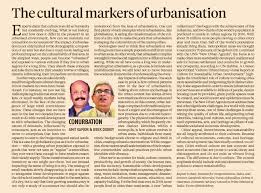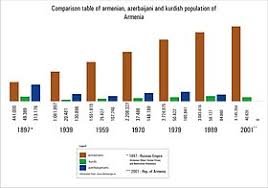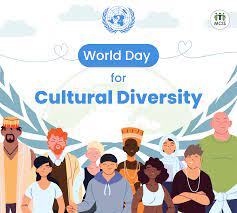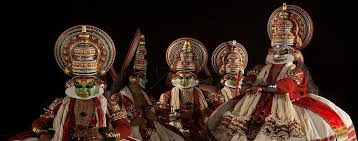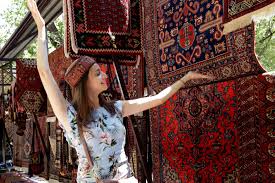
The Rich Tapestry of Armenian Culture
Armenia, a land steeped in history and tradition, boasts a vibrant and diverse culture that has captivated people around the world. From its ancient roots to its modern expressions, Armenian culture is a tapestry woven with unique customs, art forms, and beliefs.
History and Heritage
Armenian culture is deeply influenced by its rich history, dating back thousands of years. The country’s strategic location at the crossroads of Europe and Asia has exposed it to various cultural influences, resulting in a unique blend of traditions. From the majestic churches and monasteries dotting the landscape to the intricate carvings on khachkars (cross-stones), Armenia’s heritage is proudly showcased through its architectural marvels.
Cuisine and Hospitality
No exploration of Armenian culture is complete without delving into its delectable cuisine. Known for its flavourful dishes such as dolma (stuffed grape leaves), khorovats (barbecue), and lavash (flatbread), Armenian food reflects the country’s agricultural abundance and culinary creativity. Hospitality plays a central role in Armenian culture, with guests often being welcomed with open arms and treated to an array of traditional delicacies.
Arts and Crafts
The artistic spirit runs deep in Armenia, with a long-standing tradition of craftsmanship evident in various art forms. From intricate embroidery to colourful ceramics, Armenian artisans have mastered techniques that have been passed down through generations. Music also holds a special place in Armenian culture, with soul-stirring melodies of duduk (woodwind instrument) resonating through ancient valleys.
Festivals and Celebrations
Throughout the year, Armenians come together to celebrate a myriad of festivals that are steeped in tradition and symbolism. Whether it’s the joyous festivities of Vardavar or the solemn observance of Easter, these events serve as an opportunity for communities to bond over shared customs and beliefs.
Preservation and Innovation
While preserving age-old traditions remains paramount in Armenian culture, there is also a spirit of innovation that drives creative expression. Contemporary artists, musicians, and designers are reimagining traditional motifs in modern contexts, bridging the gap between past and present.
In conclusion, Armenian culture stands as a testament to resilience, creativity, and unity. It continues to inspire awe and admiration among those who seek to unravel its mysteries and immerse themselves in its timeless beauty.
Celebrating the Rich Tapestry of Armenian Culture: Heritage, Hospitality, and Harmony
- Rich historical heritage dating back thousands of years.
- Vibrant and diverse culinary traditions featuring unique flavours and dishes.
- Hospitality that is warm, welcoming, and deeply ingrained in societal norms.
- Artistic excellence showcased through intricate crafts like embroidery and ceramics.
- Musical heritage highlighted by the hauntingly beautiful sounds of the duduk.
- Festivals and celebrations that bring communities together in joyous unity.
- A culture that seamlessly blends tradition with innovation, embracing both past and present.
Exploring Challenges in Armenian Culture: Gender Roles, Family Dynamics, and Modernisation
- Limited gender equality in traditional societal roles.
- Strict adherence to hierarchical family structures may limit individual autonomy.
- Historical conflicts and geopolitical tensions have influenced cultural narratives.
- Challenges in preserving endangered dialects and languages within the culture.
- Economic disparities impacting access to cultural resources and opportunities.
- Resistance to change or modernization in certain aspects of cultural practices.
Rich historical heritage dating back thousands of years.
Armenian culture boasts a remarkable pro in its rich historical heritage that traces back thousands of years. This deep-rooted history serves as a testament to the resilience and endurance of the Armenian people through various periods of prosperity and adversity. From ancient civilizations to medieval kingdoms, Armenia’s historical legacy is a treasure trove of knowledge, traditions, and customs that continue to shape the country’s identity and influence its modern cultural landscape.
Vibrant and diverse culinary traditions featuring unique flavours and dishes.
Armenian culture shines brightly through its vibrant and diverse culinary traditions, showcasing a delightful array of unique flavours and dishes. From the succulent khorovats (barbecue) to the aromatic dolma (stuffed grape leaves) and the comforting lavash (flatbread), Armenian cuisine is a true reflection of the country’s rich history and agricultural abundance. Each dish tells a story, blending traditional ingredients with innovative techniques to create a culinary experience that is both distinctive and unforgettable. The fusion of bold spices, fresh herbs, and hearty ingredients embodies the essence of Armenian culture, inviting food enthusiasts to savour a taste of tradition unlike any other.
Hospitality that is warm, welcoming, and deeply ingrained in societal norms.
Armenian culture is renowned for its exceptional hospitality, a cherished pro that is characterised by warmth, openness, and a deep-rooted presence in societal norms. The tradition of welcoming guests with genuine warmth and generosity is ingrained in the fabric of Armenian society, reflecting a profound respect for visitors and a strong sense of community. Whether it’s inviting guests into their homes for a meal or offering a helping hand to strangers in need, Armenians exemplify the true essence of hospitality, creating lasting bonds and fostering a sense of belonging for all who cross their path.
Artistic excellence showcased through intricate crafts like embroidery and ceramics.
Armenian culture shines brightly through its artistic excellence, exemplified by the intricate crafts of embroidery and ceramics. Skilled artisans meticulously weave stories and traditions into every stitch of embroidered fabric, creating masterpieces that are both visually captivating and culturally significant. Similarly, the art of ceramic-making in Armenia showcases a harmonious blend of creativity and craftsmanship, with each piece reflecting a deep-rooted connection to the country’s heritage. Through these exquisite forms of expression, Armenian culture not only preserves its rich artistic traditions but also invites admiration for its unparalleled dedication to craftsmanship.
Musical heritage highlighted by the hauntingly beautiful sounds of the duduk.
Armenian culture boasts a captivating musical heritage, with one of its standout features being the hauntingly beautiful sounds of the duduk. This ancient woodwind instrument, traditionally crafted from apricot wood, produces soul-stirring melodies that evoke a sense of melancholy and nostalgia. The duduk’s unique timbre and emotive qualities have made it a symbol of Armenian music, transcending borders to touch the hearts of listeners worldwide. Its ethereal notes resonate through valleys and ancient landscapes, carrying with them the rich history and profound emotions embedded in Armenian culture.
Festivals and celebrations that bring communities together in joyous unity.
One of the most enchanting aspects of Armenian culture is the array of festivals and celebrations that serve as vibrant threads weaving communities together in joyous unity. These festive occasions, steeped in tradition and symbolism, not only offer a time for merriment and revelry but also create a strong sense of togetherness among people. Whether it’s the colourful dances of Navasard or the jubilant gatherings during New Year celebrations, these events provide a platform for individuals to connect, share in collective happiness, and strengthen the bonds that tie them to their cultural roots.
A culture that seamlessly blends tradition with innovation, embracing both past and present.
Armenian culture shines as a beacon of tradition and innovation harmoniously intertwined, where the reverence for heritage coexists with a forward-thinking spirit. This unique quality allows Armenia to embrace its rich past while embracing the opportunities of the present, creating a dynamic cultural landscape that honours its roots while fostering creativity and progress.
Limited gender equality in traditional societal roles.
In traditional Armenian culture, a notable con lies in the limited gender equality within societal roles. Deep-rooted norms and expectations often assign specific roles and responsibilities based on gender, creating barriers for individuals to break free from traditional stereotypes. Women, in particular, may face challenges in achieving equal opportunities and recognition in various spheres of society. This imbalance restricts the full potential of both men and women, hindering progress towards a more inclusive and egalitarian society where all individuals can thrive regardless of gender. Efforts towards promoting gender equality and challenging outdated norms are crucial steps towards fostering a more equitable and progressive Armenian society.
Strict adherence to hierarchical family structures may limit individual autonomy.
In Armenian culture, a con that is often observed is the strict adherence to hierarchical family structures, which can potentially limit individual autonomy. The emphasis on respect for elders and the authority of family elders may sometimes restrict the freedom of younger generations to make independent decisions or pursue personal aspirations. This traditional framework, while rooted in values of family unity and collective welfare, can create challenges for individuals seeking to assert their own identity and exercise autonomy in a society where familial bonds hold significant importance. Striking a balance between upholding cultural traditions and fostering individual empowerment remains a delicate yet essential aspect of navigating the complexities of Armenian familial dynamics.
Historical conflicts and geopolitical tensions have influenced cultural narratives.
Historical conflicts and geopolitical tensions have undeniably left their mark on Armenian culture, shaping its narratives in profound ways. The legacy of past struggles and territorial disputes has woven a complex tapestry of stories and perspectives that reflect the enduring impact of these challenges. These historical wounds have not only influenced art, literature, and music but have also embedded themselves in the collective memory of the Armenian people, adding layers of depth and nuance to their cultural identity. Despite the shadows cast by these conflicts, Armenians have shown resilience in preserving their heritage and using their cultural narratives as a means of both remembrance and resilience in the face of adversity.
Challenges in preserving endangered dialects and languages within the culture.
Preserving endangered dialects and languages within Armenian culture poses a significant challenge in today’s rapidly changing world. As globalisation and modernisation take hold, younger generations are often drawn towards more widely spoken languages, leading to a decline in the usage of traditional Armenian dialects. Efforts to safeguard these linguistic treasures require a concerted push to raise awareness, provide educational resources, and create opportunities for intergenerational language transmission. The loss of these unique dialects not only erodes cultural diversity but also diminishes a vital link to Armenia’s past and the stories embedded within its linguistic heritage. It is imperative for communities and institutions to work together in preserving and revitalising these endangered languages to ensure their survival for future generations.
Economic disparities impacting access to cultural resources and opportunities.
In Armenian culture, one significant challenge lies in the economic disparities that hinder equal access to cultural resources and opportunities. The divide between socio-economic classes can limit individuals’ ability to engage fully in cultural activities, such as attending performances, visiting museums, or participating in traditional events. This disparity not only restricts the enrichment of those from lower-income backgrounds but also hampers the overall diversity and inclusivity of Armenian cultural experiences. Efforts to address these economic barriers are crucial to ensuring that all members of society can partake in and contribute to the preservation and evolution of Armenia’s rich cultural heritage.
Resistance to change or modernization in certain aspects of cultural practices.
In certain aspects of Armenian culture, a notable con is the resistance to change or modernization in traditional cultural practices. While the preservation of heritage is crucial for maintaining identity and continuity, the reluctance to adapt to evolving societal norms and technologies can hinder progress and innovation. This resistance may lead to a disconnect between older generations who uphold longstanding customs and younger individuals seeking to embrace contemporary lifestyles. Finding a balance between honouring the past and embracing the future is essential for ensuring the vitality and relevance of Armenian culture in an ever-changing world.
